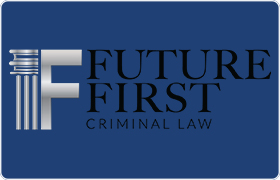Gilbert Criminal Lawyer, Arizona, page 5
Sponsored Law Firm
-
 x
x

Click For More Info:
-
Future First Criminal Law
2999 North 44th Street Suite 307 Phoenix, AZ 85018» view mapCriminal Defense Defending Your Rights
At Future First Criminal Law we help keep GOOD people out of jail! We are a competitive criminal defense and DUI firm in the valley that ruthlessly advocates for our clients.
602-900-6642
Rebekah Sharon Bell
Litigation, Family Law, Divorce & Family Law, Juvenile Law
Status: In Good Standing Licensed: 17 Years
Ian Nicholas Service
Other, Family Law, Juvenile Law, Criminal
Status: In Good Standing Licensed: 16 Years
Robert Joseph Weber
Traffic, Estate, Criminal, Accident & Injury
Status: In Good Standing Licensed: 61 Years
 Zachary Divelbiss Phoenix, AZ
Zachary Divelbiss Phoenix, AZ